Scott AndersonIsaiah 61:1-4, 8-11 † Psalm 126 † 1 Thessalonians 5:16-24 † John 1:6-8, 19-28 A video version of this sermon can be found here. Just about every Christmas season I return to W. H. Auden’s Christmas long poem “For the Time Being.” I’m not entirely sure why. It isn’t a particularly efficient or even rewarding exercise even as I am drawn to sputtering along in my reading. I do suspect it holds a certain inspiration for me, or at least the promise of it that I am at any moment apt to tap into a reserve of insight and understanding. Perhaps my motivation is wrapped up in some faulty psychology that supposes because it is thick, because it is hard work to understand that it must be worth it. I do get that possibility, so you armchair psychologists can just sit on your hands for the moment. In fact, I think it is the other side of that psychological coin that has something more to do with this strange Advent season in this extraordinary “coronatide” time. It’s the audacity of this time that captures me. It’s the foolishness of this faith that imagines we can mobilize the machinery of the hope required to cut a path through mountains and valleys to make the way straight and wide, when it all seems so, well, not that, so anything, but passable. Foolish indeed. Faith, like love, is never easy. In Advent we are invited to meditate on the world as it is and as it might be. There’s a grittiness to the work of bringing both these things to the light. A need for determination and fortitude to be clear-eyed and succinct as to where we are on this journey and what the landscape really looks like when the trivial casts such a long shadow. To name clearly our redemption—where we want and need to go and what we will do not to get there. And right along with it, there is an absolute dependence on what comes to us from without and unexpected, what arrives unsolicited, the stranger we encounter along the way that changes everything, the gift that surprises, that we could never earn or manufacture, and yet is necessary for our survival, the inspiration that is birthed in weakness and grown in such a common purpose that it becomes unstoppable. Are you like me? Do you long for this? Which is, I suppose, my experience of poetry. I think we often associate the genre with high-minded extravagance born from privilege. It is, of course, anything but. Prose is the language of control. Poetry is the language of revolution—of the rapper and preacher and dreamer. From the Greek, it connotes real action—the production, the creation, the bringing to life of what is real and true and good—power and vulnerability fused. John demonstrates as much when he answers the straight-forward question, “Who are you?” with the poetry of Isaiah. I am the voice of one crying out in the wilderness, ‘Make straight the way of the Lord,’[i] In Advent we meditate on the world as it is and as it might be. But sometimes, when the “is” is so disheartening, when the mountain of resistance and cruelty is so imposing, when the crushing load is levied on us by the hands of those who pull the levers of power and it is simply too much to bear. So John comes as a poet, “witnessing to the light.” How does one do that, exactly? Consider Auden’s Shepherds who appear mid-way through the Christmas Oratorio that Auden penned under the dark shadow of a second world war. They are the working class, these shepherds, the laborers who keep the levers of progress operational. The winter night requires our constant attention, Watching that water and good-will, Warmth and well-being, may still be there in the morning, For behind the spontaneous joy of life There is always a mechanism to keep going, And someone like us is always there.[ii] They are not fools of course. They see the world as it is. We observe that those who assure us their education And money would do us such harm, How real we are just as we are, and how they envy us, … Have done pretty well for themselves: Nor can we help noticing how those who insist that We ought to stand up for our rights, And how important we are, keep insisting also That it doesn’t matter a bit If one of us gets arrested or injured, for It is only our numbers that count.[iii] In Advent we are invited to meditate on the world as it is. So the third shepherd responds: In a way they are right, And yet, in Advent we are also invited to meditate on the world as it might be—what can be leveled and straightened and created. But to behave like a cogwheel When one knows one is no such thing, …Is not a virtue. What is real
About us all is that each of us are waiting. … For, though we cannot say why, we know that something Will happen: …one day or The next we shall hear the Good News.[iv] In First Thessalonians, Paul encourages the church to rejoice always, to pray without ceasing, to give thanks in all circumstances. By themselves, these can be pretty empty vessels without much to substance. But then he draws on the image of a fire. Do not quench, do not snuff out the Spirit by despising the prophetic word. Remain in this hope, give yourself to it, and you will live.[v] In Advent we meditate on the world as it is, and as it might be. In Advent we meditate on the truth that has come and is coming again to save us. It came again for me this week, this renewed hope as I was doing perhaps the most ordinary thing—cleaning up. I came across a card that filled me again with the fire of hope, that gave me energy to keep going in this way, no matter how tough it is. To be brave; to see the world as it is, and my sordid, conflicted, place in it. And to be better. It is a poem. Yes, one more poem. But it wasn’t just the poem, but the relationship, the history, the memory it represents that made the moment what it was—a promise of salvation coming to us in the most vulnerable and tender ways. I suppose this is always the way it is. It’s by Mary Oliver. I’m sure some of you know it; we will let it have the last word: Every morning the world is created. Under the orange sticks of the sun the heaped ashes of the night turn into leaves again and fasten themselves to the high branches– and the ponds appear like black cloth on which are painted islands of summer lilies. If it is your nature to be happy you will swim away along the soft trails for hours, your imagination alighting everywhere. And if your spirit carries within it the thorn that is heavier than lead– if it’s all you can do to keep on trudging– there is still somewhere deep within you a beast shouting that the earth is exactly what it wanted– each pond with its blazing lilies is a prayer heard and answered lavishly, every morning, whether or not you have ever dared to be happy, whether or not you have ever dared to pray.[vi] Notes: [i] John 1:23. [ii] “For the Time Being: A Christmas Oratorio” by W. H. Auden in Collected Poems (New York: Vintage, 1991), 375. [iii] Ibid. [iv] Ibid., 375-376. [v] 1 Thessalonians 5:16-22. [vi] Mary Oliver. “Morning Poem” in New and Selected Poems: Volume One (New York: Beacon Press, 1992), 106.
0 Comments
Leave a Reply. |
St. Andrew SermonsCategories
All
|
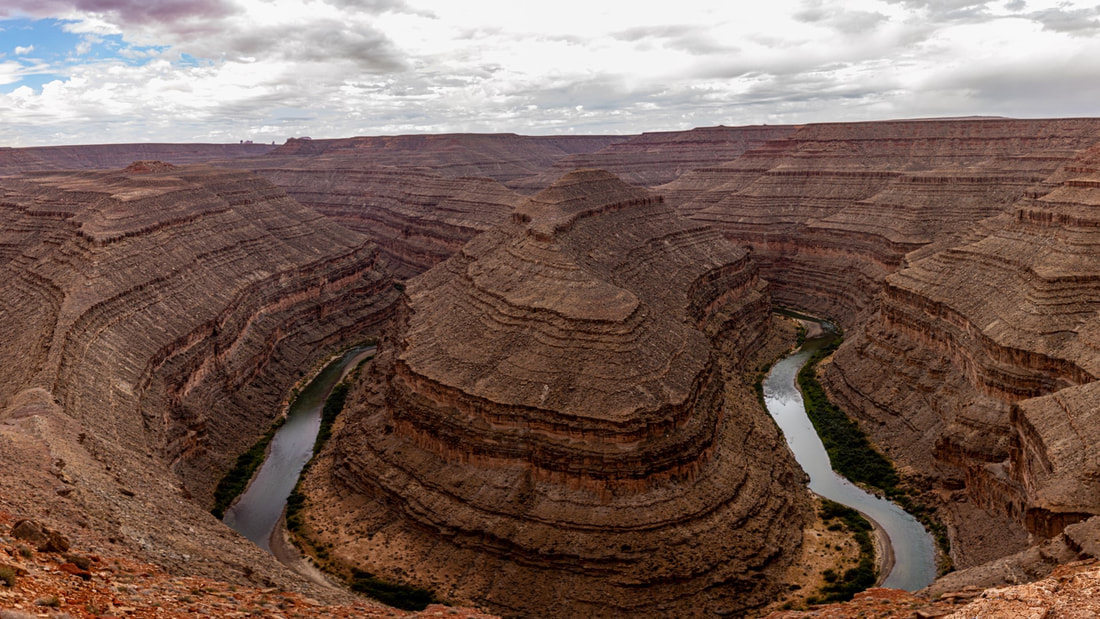
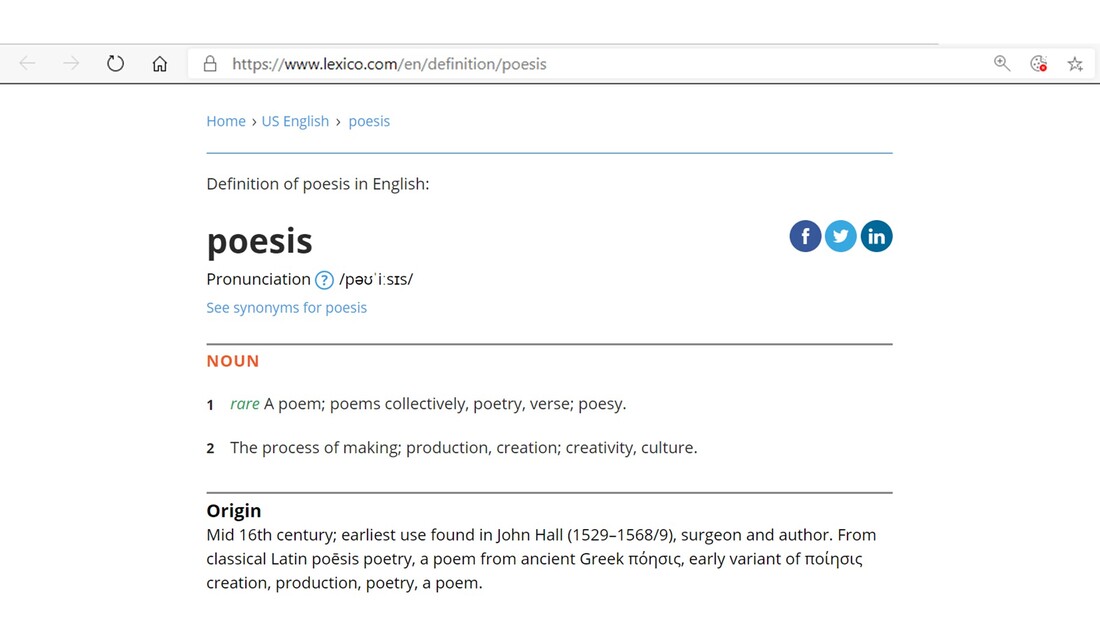
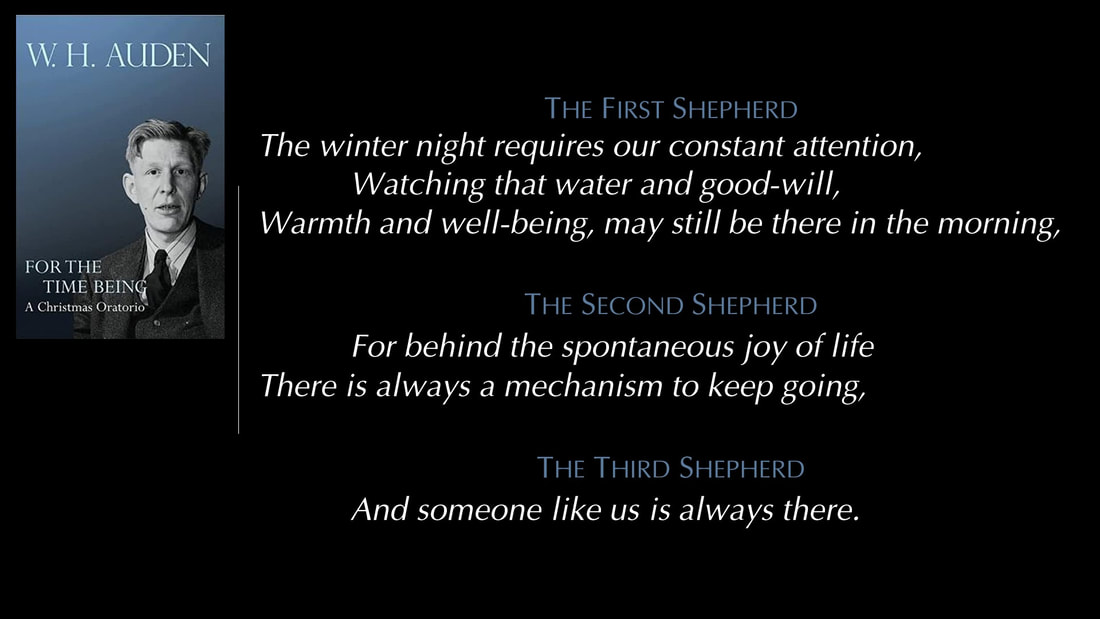
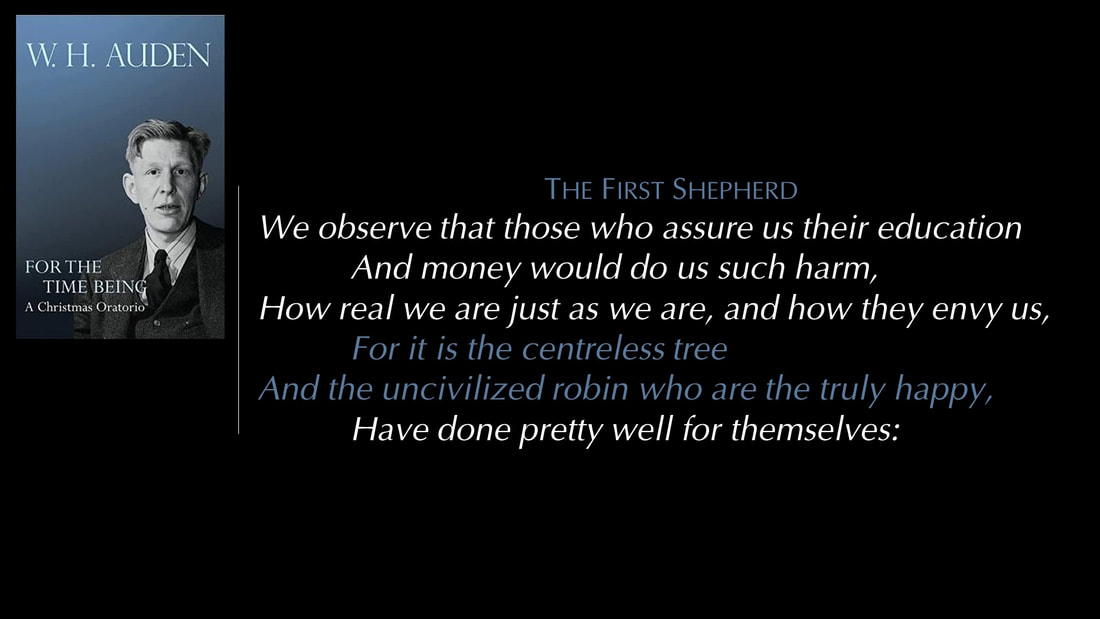
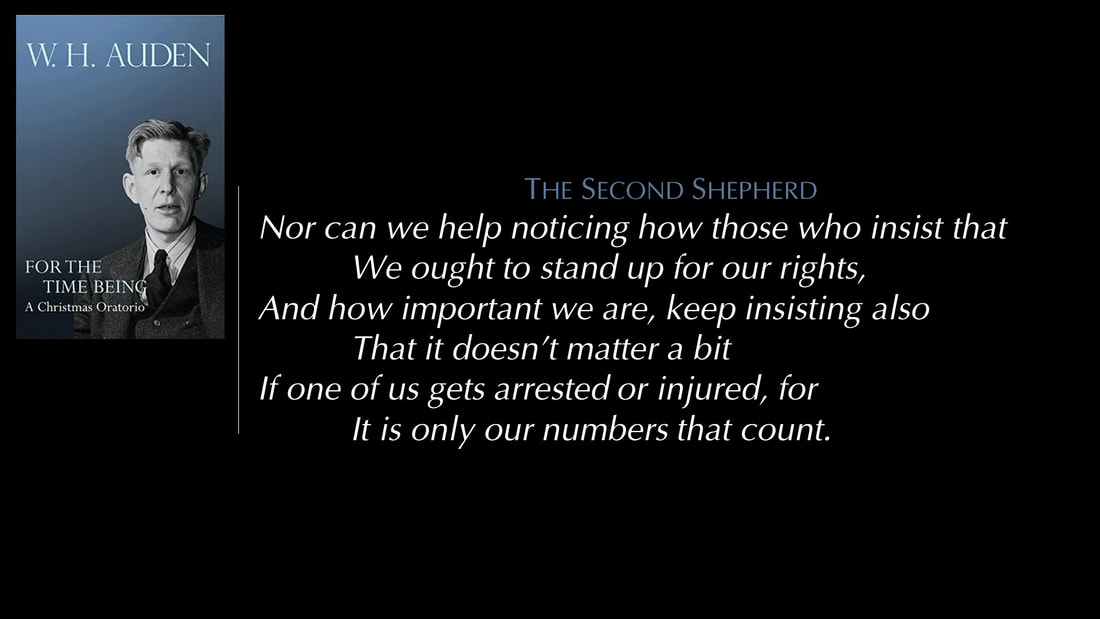
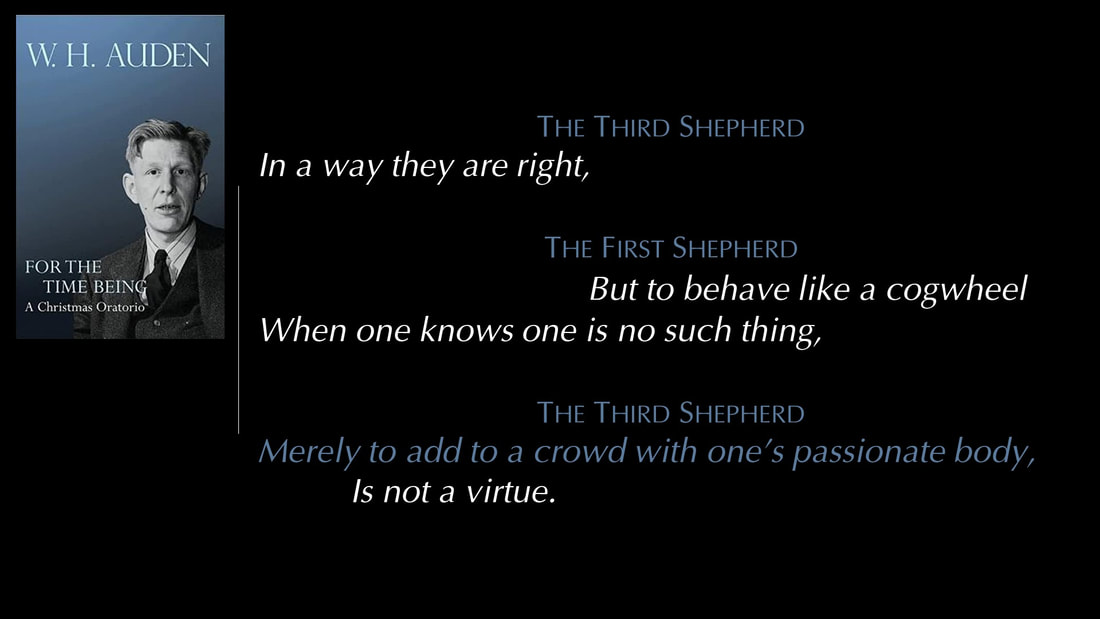
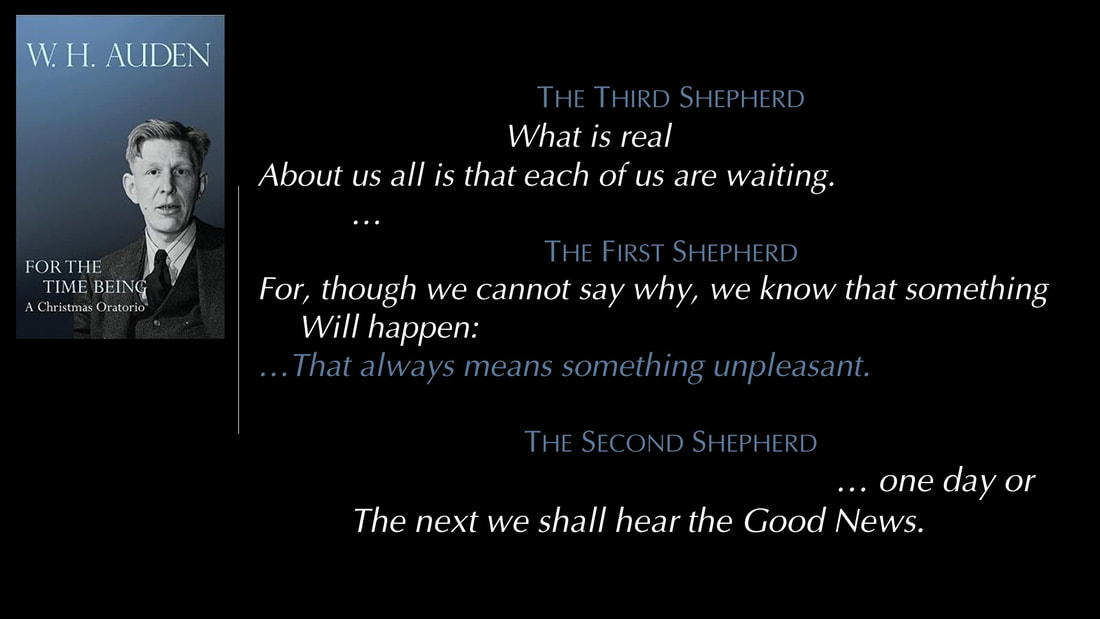
 RSS Feed
RSS Feed